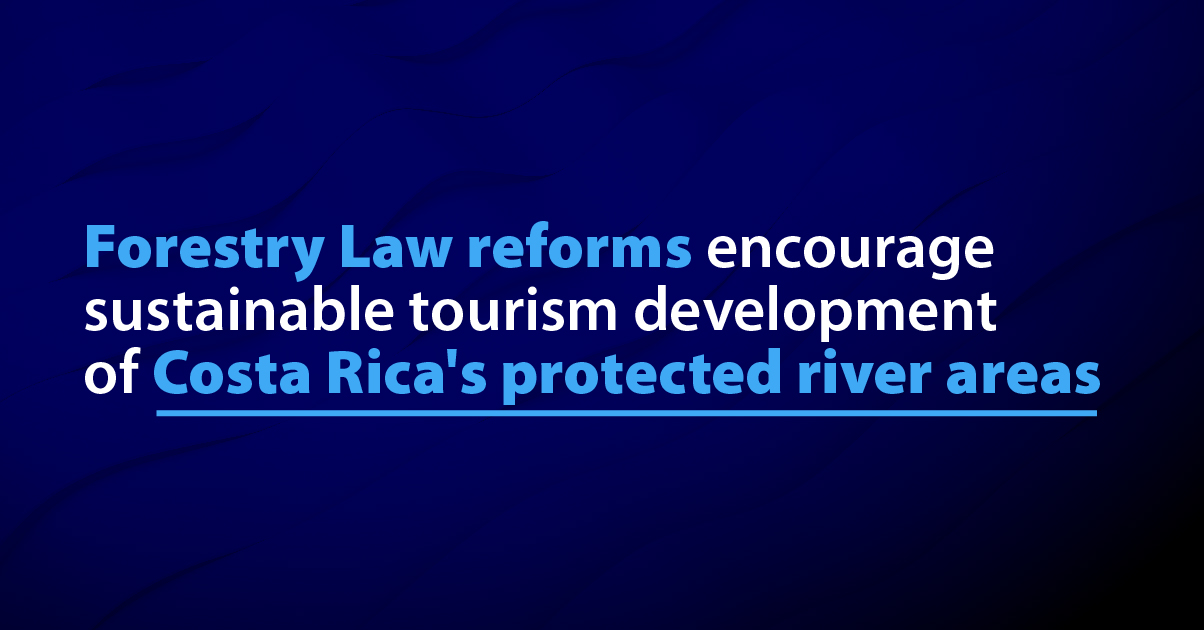Luis Palacios
Director and Environmental Law Specialist
Costa Rica
[email protected]
Recently approved reforms to the Forestry Law allow the development of riverbeds, supporting the cause of sustainable tourism in Costa Rica. By providing greater legal certainty to civil works that must necessarily border on rivers, streams, or other bodies of water, the reforms promote tourist activities nearby.
For decades, Article 33 of the Forestry Law implied an almost absolute prohibition of any development in protected areas near the country’s watercourses. This article requires that owners of land crossed or bordered by rivers maintain clear strips of 15 meters in rural areas and 10 meters in urban areas if the land is flat, and 50 meters if hilly.
The reforms included in articles 33a and 33b relax such prohibition, permitting the civil and sustainable tourism works outlined below.
a. Civil works within water areas:
The Law expressly permits the development and maintenance of civil works over, on, or near water bodies, such as:
- Bridges
- Dikes
- Walls
- Sewers
- Aqueducts
- Intakes and derivations of water concessions
- Waste collection nets
- Infrastructure for the discharge of rainwater or treated wastewater.
b. Works for tourism purposes:
- Observation platforms/decks
- Bridges
- Ziplines/canopy
- Signage
- Any other element that assures the safe enjoyment of nature.
c. Regularization of existing works:
The legal changes also provide that existing works within protected zones must be validated within 24 months, while work permits within watercourses and their protection areas must be approved by the Water Directorate of the Ministry of Environment and Energy within three months following the publication of the Law.
By relaxing a rigid scheme, the reforms enhance the development of infrastructure and ecotourism that generate so much value for Costa Rica. They also represent a paradigm shift by recognizing that widespread access to the country’s habitats encourages a collective culture of value and respect for natural resources, which benefits the ecosystems that the Forestry Law seeks to protect.
Luis Palacios
Director and Environmental Law Specialist
Costa Rica
[email protected]




